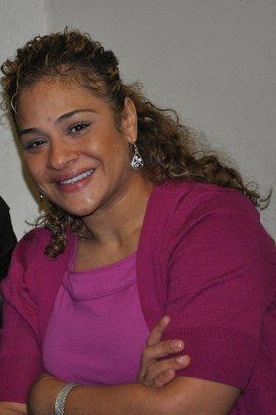The Two Faces of Fraud: Teacher gives herself credit for Professional Development course she taught?
In 2012 Miami Norland High School two teachers were caught helping students cheat on an industrial art test. This led to a major IG investigation and district scandal. It would seem Miami-Dade teachers, administrators and district staff would be hypersensitive to any hint of cheating or impropriety. That may not be the case, it appears history is repeating itself.
On Monday, November 4, 2013 Mrs. Mary Morcos, an English teacher at Miami Norland Senior High School, cancelled a Professional Development (PD) training session and had a replacement course approved. According to sources, Morcos erroneously created a meeting for no points, caught her mistake and canceled that session, and then offered a session for credit per Contract the next day, less than 3 days before the beginning of the Professional Development course. This is a violation of District professional development policy.
But it gets worse.
Morcos then registered herself as a student for the course and received a “satisfactory grade” along with a Certificate of Completion. Morcos is listed as the facilitator for the course, which was in fact taught by her friend and colleague, Ms. Linda Garcia, a Reading Coach and member of the Professional Learning Support Team (PLST) at Norland SHS. However, Morcos taught a class the same day, November 8, 2013, which was approved by the Center for Professional Learning (CPL) on November 6, 2013, less than two days before the beginning of the course, as evidenced by class lists and a student’s registration.
It is not possible for one to be a student receiving credit and an instructor teaching a course and awarding credit to students for all day professional development activities all on the same day. Yet Garcia allowed Morcos to be granted credit as did CPL for her and the students she taught in her separate course.
Moreover, per CPL procedures, Mrs. Morcos was supposed to cancel her registration in the course instructed by Ms. Garcia if she could not attend. The District’s Professional Development Frequently Asked Questions reads:
“27) Am I required to cancel my registration if I cannot attend a session?”
“Yes. Click on the My Course link course in the PD Menu and Registration System. Select the course you would like to cancel and click Cancel in the upper left corner.”
The follow up work for the replacement course, Data Analysis & Instructional Content in the Education Transformation Office (ETO), was supposed to be for one point, meaning it would take an hour to complete it. As evidenced by an email sent by Morcos on November 19, 2013, the follow-up work was one paragraph which a reasonable person would assume would take 10 to 15 minutes to complete. The email also alludes to questionable attendance as faculty was reminded to sign in eleven (11) days later which leads to verification questions.
ANALYSIS
The issues detailed in this column pertain to timeliness; course quality; lack of adequate controls by CPL; and a suspicion of fraud as points may have been illegally obtained. Given the numerous errors by Morcos, it is doubtful that she was properly trained. Despite possible lack of training, she should know as it is common sense that one cannot earn credit as a student and teach a course on the same day during the same timeframe.
TIMELINESS
According to the 2013-2014 Professional Development (PD) Guidelines, all course sessions must be posted to the PD Menu and Registration System at least two weeks before the scheduled start date in order to provide employees with sufficient time to register prior to the commencement of the session or course, and disallows credit of participants who do not pre register for courses.
Morcos, according to school records, posted two sessions just days before the November 8, 2013 PD Day: Data Analysis & Instructional Content in ETO, session posted on November 5, 2013; and Relating ESE/Homeless Awareness &Prevention, session posted on November 6, 2013. Furthermore, it appears Norland school administration should have not approved these courses as they violated CPL timeframe policies. By procedure, Mr. Lee, as the Norland SHS Principal, has to approve courses and Ms. Gilzean has to be apprised of the PD sessions.
As a former PDL, Morcos should know CPL policies and procedures.
Additionally, two teachers, Mr. Malcolm Marshall and Mrs. Natasha Exemar, registered late, the date being November 13, 2013, but were given credit. Though Mrs. Morcos submitted the course templates and offered sessions, CPL personnel approved her course templates and allowed her to offer those sessions, allowing teachers to register for these sessions and earn credit from them, two of them (Marshall and Exemar) late registrants, though they were submitted in an untimely manner contrary to CPL policies and state law as surely this conflict with Learning Forward standards Course Quality Courses are supposed to be based on “rigor, relevance, and research,” as stipulated in the Professional Development Guidelines 2013-2014.
A previously prepared course, Common Core for Viking Teachers (CCFVT), available to Morcos, is rigorous given the nature and structure of the course and the follow-up activity. Given that Common Core will be implemented in Florida high schools in August 2014 and only three teachers at Norland have been trained in the CCSSI, it is critical that meaningful and rigious courses be taught. CCFVT is relevant is based on the latest research as proffered by the National Governor’s Association and the Council of Chief State School Officers as outlined in their position papers. To ensure relevance, the sessions (four in total) for this course were offered by subject matter and instructed by the respective instructional coach as the CCSSI was meant to be presented and understood as applied in a particular subject matter. CCFVT has not been used to date.
Morcos’s course for the general faculty, Data Analysis & Instructional Content in ETO, appears to be redundant as teachers engage in data analysis in common planning sessions. The course seemed to lack rigor as the follow-up work was one paragraph; it seemed irrelevant as the faculty was well-versed versed in data analysis; and it does not seem to be well researched. Under prerequisite skills, the following reads: “Teachers and Instructors will evaluate data based on previous school wide assessments based on Common Core State Standards (CCSS) and State DOE mandated instructional practices and Educational Transformation Office Guidelines (ETO) guidelines for performance indicators.”
Interestingly, the state does not even know or have an approved assessment to assess the CCSS, so what is Marcos referring to? The CCSS has not been assessed school wide. Teachers dissect Interim Assessment data in common planning sessions, but those are based on FCAT
Reading and EOC data.
The CCFVT course was based on materials from AchievetheCore.org and videos from the Hunt Institute. Morcos’s course is based only on data analysis which teachers do on a weekly basis as a matter of course. One cannot reasonably believe this took up an entire six hour session. Morcos’s course may be indicative of last minute planning. Yet CPL approved and allowed it. One only has to compare the CCFVT course to the Morcos course, to determine which is more relevant.
The course Morcos allegedly taught on the same day, and 15 staff members received credit for, Relating ESE/Homeless Awareness & Prevention, was posted for session in less than two days before the course began. The course template lists the audience as student services and paraprofessionals, yet seven teachers took and received credit for the course. Initially nine (9) staff members were granted credit, but weeks later, six (6) more were granted credit which raises additional questions.
POTENTIAL FRAUD
Professional development compliance is every teacher and administrator’s responsibility. However, compliance begins and ends with the instructor. The instructor, though he/she can defer to the facilitator and/or PDL, is responsible for registering and grading students.
For the course Mrs. Morcos received credit for as a student, Data Analysis & Instructional Content in ETO, Ms. Linda Garcia was the instructor. Both Mrs. Morcos and Ms. Garcia accepted the Instructor/Facilitator Agreement to uphold professional development protocols and procedures.
Did Mrs. Morcos show up for the first and last 30 minutes of Data Analysis & Instructional Content in ETO, teach her class (Relating ESE/Homeless Awareness & Prevention) for which 15 staff members received credit for in between, and Ms. Garcia said and did nothing, thereby being complicit?
The evidence suggests just that.
Moreover, CPL lacked adequate controls to catch these incidents as personnel failed to cross reference her course as a teacher and her participation as a student on the same day during the same hours.
CONCLUSION
If Mrs. Morcos did indeed instruct her course, Relating ESE/Homeless Awareness & Prevent, while she received credit as a student in the course Ms. Garcia instructed (Data Analysis & Instructional Content in ETO) a fair-minded person would assume she and Ms. Garcia violated the following provisions of Florida’s Code of Ethics – Education Profession:
“6B-1.001 Code of Ethics of the Education Profession in Florida.
3. Aware of the importance of maintaining the respect and confidence of one’s colleagues, of students, of parents, and of other members of the community, the educator strives to achieve and sustain the highest degree of ethical conduct.6B-1.006 Principles of Professional Conduct for the Education Profession in Florida.
5. Obligation to the profession of education requires that the individual:
a. Shall maintain honesty in all professional dealings.
h. Shall not submit fraudulent information on any document in connection with professional activities.
n. Shall report to appropriate authorities any known allegation of a violation of the Florida School Code or State Board of Education Rules as defined in Section 1012.795(1), Florida Statutes.”
The Florida Department of Education is conducting a Protocol Review of the Miami-Dade School District during the week of February 24-28, 2014. Given the nature of Report No. 2013-108, issued by the Office of the Auditor General of Florida, a reasonable person would conclude that one of the 35 Miami-Dade schools being visited would be Norland SHS.





Trackbacks & Pingbacks
[…] sense and just may force them to clean up their act, especially in the areas of compliance with professional development procedures, teacher observation and evaluation improprieties, test cheating, and treatment of whistleblowers […]
[…] (Reading Coach) and Mary Morcos (English teacher) at Miami Norland Senior High School engaged in a professional development scandal last November in which Ms. Garcia gave Mrs. Morcos seven Master Plan Points while she taught a […]
[…] SHS and districts like Miami-Dade to clean up their act, especially in the areas of compliance with professional development procedures, teacher observation and evaluation improprieties, test cheating, and treatment of whistleblowers […]
[…] SHS and districts like Miami-Dade to clean up their act, especially in the areas of compliance with professional development procedures, teacher observation and evaluation improprieties, test cheating, and treatment of whistleblowers […]
Comments are closed.